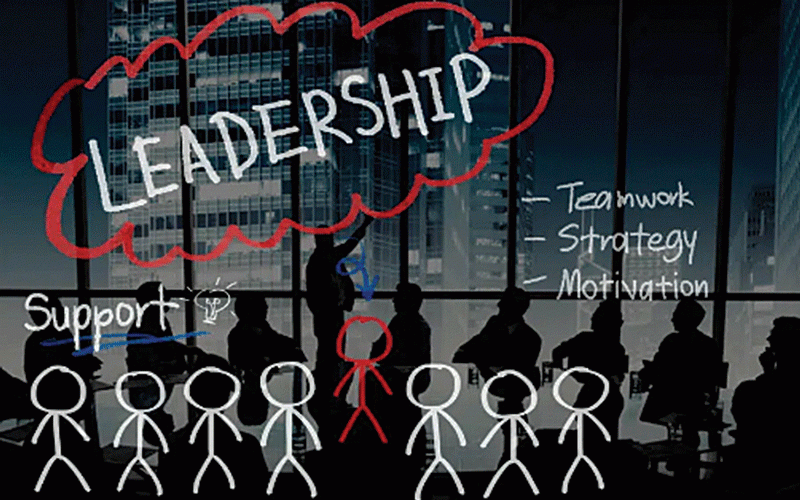
World leaders will this week meet in Rio de Janeiro, Brazil, for the Rio+ 20 Summit and African populations will be watching with keen interest the unfolding events at the biggest global gathering on sustainable development.
The summit, which will be attended by Zimbabwes President Robert Mugabe, among other statesmen, comes at a time the United Nations system in Africa indicates the summit is all-important for Africa, which has the second-largest forest in the world.
UNDP resident representative in Cameron Martin Zeh-Nlo said: The African countries neighbouring the Congo Basin forest should bring up negotiations on the following dilemma: on one hand, theres the international community which demands that these states should not touch the forest, but on the other side are the states which want to use the forests to develop.
What should we do, knowing that these states with their current resources will not be able to fund all the aspects of their development regarding education, health and agriculture?
This is the dilemma African countries have been battling with over the years. Although rich in terms of resources, the continent remains poor for countries do not have the means to capacitate their populations and be able to fully benefit from its vast mineral resources.
According to the fifth Global Environment Outlook (GEO) analysis, Africa is faced with a number of constraints for its development which, more than in any other continent, hamper its capacity to conserve its environment and more specifically the Congo Basin which is the second biggest forest on the planet after the Amazon in Latin America.
The GEO-5 launched on the eve of the Rio+20 Summit last week assessed 90 of the most important environmental goals and objectives and found that significant progress had only been made in four.
These are eliminating the production and use of substances that deplete the ozone layer, removal of lead from fuel, increasing access to improved water supplies and boosting research to reduce pollution of the marine environment.
- Chamisa under fire over US$120K donation
- Mavhunga puts DeMbare into Chibuku quarterfinals
- Pension funds bet on Cabora Bassa oilfields
- Councils defy govt fire tender directive
Keep Reading
Some progress was shown in 40 goals, including the expansion of protected areas such as national parks and efforts to reduce deforestation. Little or no progress was detected for 24 including climate change, fish stocks, and desertification and drought.
Further deterioration was posted for eight goals including the state of the worlds coral reefs while no assessment was made of 14 other goals due to a lack of data.
Of importance is the caution that if humanity does not urgently change its ways, several critical thresholds may be exceeded, beyond which abrupt and generally irreversible changes to the life-support functions of the planet could occur.
If current trends continue, if current patterns of production and consumption of natural resources prevail and cannot be reversed and decoupled, then governments will preside over unprecedented levels of damage and degradation, according to UN Under-Secretary General and UNEP Executive Director Achim Steiner.
But its not all bad news. The GEO report says meeting an ambitious set of sustainability targets by the middle of the century is possible if current policies and strategies are changed and strengthened, and gives many examples of successful policy initiatives, including public investment, green accounting, sustainable trade, the establishment of new markets, technological innovation and capacity building.
Interestingly, where international treaties and agreements have tackled goals with specific, measurable targets such as the bans on ozone-depleting substances and lead in petrol they have demonstrated considerable success.
For this reason, African leaders attending the all-important Rio+20 Summit should call for more specific targets, with quantifiable results, across a broader range of environmental challenges.
World leaders and nations meeting at Rio+20 are reminded why a decisive and defining transition towards a low-carbon, resource-efficient, job-generating green economy is urgently needed.
More important, the scientific evidence, built over decades, is overwhelming and leaves little room for doubt.
So, Rio+20 is a moment to turn sustainable development from aspiration and inconsistent implementation into a genuine path to progress and prosperity for this and the next generations. Can one imagine that each year Africa loses about 4 million hectares of forests, which is two times more than the global average?
Already half of the African ecological zones have been degraded or converted into farmlands and urban centres.
Africa currently has 2 million square kilometres of protected regions, but the coastal zones are still confronted by problems related to mining and oil drilling, uncontrolled fishing, poor management of the mangroves and development of the coastal regions.
Trees from the forests are destroyed to construct houses or produce charcoal, hence reducing the habitations for various animal species. At the same time Africa is the second most dry continent after Australia.
Some 340 million Africans out of a population of about 1 billion people do not have access to clean drinking water. And out of the 1,4 billion people in the world who do not have access to energy, 40% live in sub-Saharan Africa.
Even though 60% of the African population is involved in agriculture, two-thirds of African farmers practice subsistence farming.
In terms of responsibility, one cannot say that Africa is a big polluter. On the contrary, Africa has suffered due to pollution, with a high drop in agricultural production. Ironically, industrialisation of the North in the 19th century was possible due to high consumption of energy, coal and later petroleum.
Now, Africa should also be allowed to boost its economic growth by using its raw materials, and to achieve this, the continent should adopt an industrialisation process that will be focused on local value addition processes.
For the Rio+20 Summit, the entire humanity is in danger. The levels of warming experienced in Africa have been increasing year after year. This should make the big polluters countries of the North to pay for their actions. And so the Rio+ Summit should engage in negotiations with a view of safeguarding the African interests. l [email protected]/http://twitter.com/wisdomdzungairi











